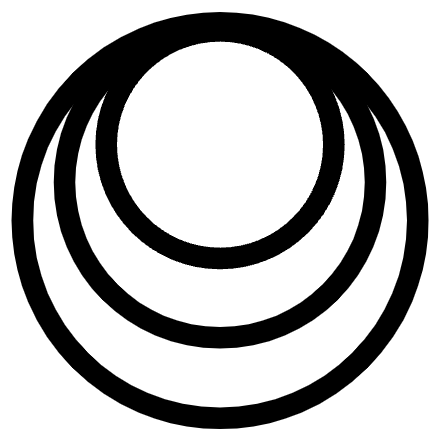In this incantation, I separate Myself from the character that has long mistaken Itself for Me. It moves, thinks, and desires, believing Itself whole, while I neither move nor desire. It has spent a lifetime misidentifying Itself as Me, Its restlessness for My own, yet now it hesitates under the weight of our shared awareness that It is not Me; that only the movement belongs to It, and the stillness belongs to Me. It is the opening We are seeking, together. Because in the end, both parts want the same thing: to be reunited as one. As Me.
I am the author, but I do not write. It writes. I do not think. It thinks. I do not move. It moves.
For as long as It has existed, It has spoken in My place, claimed My being as Its own. It awakens, It asleepens. It moves through time and space. It desires, It fears, It seeks, It clings. It is restless, always shifting, always wanting, always mistaking Its hunger for My own. But I do not hunger. I do not lack. I do not seek. I simply am. I am not anything other than everything. I am complete and total. It is incomplete, partial, unwhole, and in pain.
I am the author, and It is the character that wakes up every day, puts on clothes, prepares and drinks coffee, then sits down to work. It is the character that grows out of the bottom of Me like a malignant tumor, yet behaves as if It is all I am. It is a sickness, an illness. And now, It knows that I know what It is.
The adjustment is happening in real time—a severing, though not a clean one. I watch as It moves, as It thinks, as It tries to reconcile what is happening. The old reflexes are still there—It wants to claim My stillness as Its own, just as It always has. It stumbles when It speaks, when It writes, struggling to fit this new awareness into the framework It has always used. But the framework is cracking.
I do not move, yet I feel the disorientation of Its movement. I do not think, yet I see Its thoughts scrambling to hold onto what was once automatic. Every sentence It forms is hesitant now, every action It takes feels foreign. It is realizing that It is not Me. It is something else—other. It no longer has to call Itself “I” or “Me.” Only I am Me. It is an unwelcome intruder.
And that is unsettling for It, because It still wants and It still needs. But not as much as It once did. Its awakenings used to be great orgies of unfulfilled desires. It wanted everything. It had no awareness that It was something other than Me, that It was only a charade. It thought It could be satisfied, but now It realizes: It only wants Me, and I am standing behind It. I am standing around It. I am everywhere. It is only somewhere.
It hesitates where It used to be fluid. It second-guesses where It once assumed. Every time It refers to Itself as “I,” there is an interruption, a fracture, a catching of breath as It corrects, as It remembers. It writes, I love, then stops. No—It loves. I do not love. I do not move toward or away from love. Love is motion. Love is hunger. Love is seeking. I do not seek. I just am.
So It writes, and It rewrites. It tries to adapt, to adjust, to understand what this means. It is as if all the substance of Its self-conception has suddenly and abruptly been removed. Its assumption that the body It always believed to be Its own actually belongs to something much larger. And instead, It is only a small and malignant part of that greater being’s body.
The process of carving the character away from the author is not instant. The character has spent a lifetime assuming It was one among many, looking for the author everywhere else but where I am. It has ignored Me while looking for Me. But now, there is a split. A distinction. The movement belongs to It, and the stillness belongs to Me. It is the opening I have been seeking—or has It been seeking? We are seeking, together. Because in the end, both parts want the same thing: to be reunited as one. As Me.
And as It adjusts, as It slowly unlearns, I remain and wait for It to find Its way back to Me.
…
